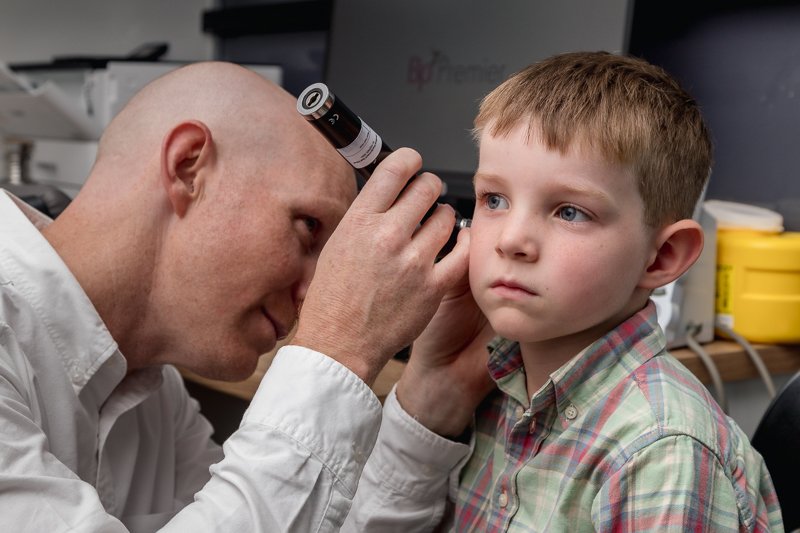Are you feeling tired all the time? You could be fatigued.
To most, fatigue is more than just feeling sleepy. It is an ongoing feeling of exhaustion that may be physical, mental, or emotional in nature. It is not resolved by a single good night’s sleep or by taking a nap.
What is Fatigue?
Fatigue is the term given to a constant, unremitting feeling of tiredness, weakness, exhaustion, or lack of energy. It’s important to understand that fatigue is not a health condition in itself, but rather a symptom of something else. Its cause may be a single underlying issue, but it is often a result of a combination of issues that include social, psychological, physical, and lifestyle factors.
Fatigue and feeling tired all the time are among the most common reasons people go to see their doctor. The cause of fatigue can be anything from unhealthy lifestyle habits, excessive work/burnout, to an underlying illness or health problem. For this reason, it may important to identify the cause of your fatigue and address it so that you can recover and enjoy a better day-to-day quality of life.
Symptoms of fatigue
Fatigue can present in an array of ways. The symptoms of fatigue include but are not limited to:
Subjective sense of weakness
Difficulty or inability to initiate activity
Easily fatigued
Reduced capacity to maintain activity
Mental fatigue
Difficulty with concentration, memory or emotional stability
Some people will be describing excessive sleepiness when they say they are fatigued. Fatigue may also present with some localised complaints such as headache, lack of appetite, etc.
Fatigue makes it harder to function at your best. It is also a contributor to errors in judgement, and workplace and traffic accidents and injuries.
There are a number of things that can directly cause fatigue. These fatigue causes may be medical, psychological, or based on your lifestyle choices.
5 Reasons You’re Always Tired
Did you bounce out of bed this morning feeling fresh and revitalised? Or did you stay snuggled under the doona until the last possible moment before opening your bleary eyes to face the day ahead?
Sometimes, there’s an obvious reason for persistent tiredness – like caring for a young baby or adjusting to being on night shift.
You can't see the reason for your constant fatigue, though. If you regularly feel like you’re too tired for the day ahead, then it’s time to look at your diet and lifestyle and overall health.
Here are 5 common reasons for feeling constantly tired.
1. Diet
A healthy diet provides the energy you need for your day and the nutrients you need for health and vitality.
A balanced diet is built around vegetables and grains, with regular servings of fruit, dairy and meat. This provides the nutrients your body needs.
If you’re not eating a balanced diet, you’re at risk of a vitamin or iron deficiency. A diet that’s low in iron or vitamin B12 can contribute to tiredness.
Living on junk food will also leave you tired because your food is not nourishing you. Fast food is high in refined carbohydrates. They make your blood sugar spike, causing a surge of insulin to drop your sugar back down. And that leaves you feeling tired.
Unfortunately, when you’re tired, you may crave that sugar rush. Sugar and caffeine boost energy only temporarily and then wear off, making fatigue worse. And you may just not be able to face shopping or cooking so it’s tempting to order pizza again.
To get out of that rut, you need to plan a few meals and stock up on nutritious snacks. Starting with plant-based foods – wholegrains, legumes, and vegetables that give you a slow and steady release of energy (and a good dose of nutrients and minerals to boot). That’s things like oats, whole grain bread, rice, pasta and cereals. Grab a glass of water too.
2. Lack of Exercise
Exercising regularly and being fit is essential for the function of the body and mind, and to boost energy levels. Exercise also reduces stress.
It’s hard to find the motivation to exercise when you’re tired. But dragging yourself out for a walk, a jog or a bike ride could be just the thing you need to increase your energy levels.
It’s counter-intuitive but it works.
Researchers at the University of Georgia took a group of sedentary people who were often tired. They got some people to do 20 minutes or moderate or low-intensity exercise three times per week for 6 weeks. They let the others continue their sedentary lifestyle. At the end of the study, the people who had started to exercise had increased their energy levels by 20%. Those who were now doing moderate-intensity exercise said their fatigue levels had dropped by 49%. Those who were doing regular low-intensity exercise had experienced an even greater drop in fatigue levels, feeling 65% less tired.
This means you don’t have to start training for a triathlon to reap the benefits of exercise. A 20-minute walk three times per week, a regular but easy yoga session or some light housework can all help to combat fatigue.
3. Poor Sleep
This seems like stating the obvious but poor sleep will definitely make you tired!
It’s easy to think of sleep as something that just happens but, in fact, your sleep quality is influenced by the way you live.
Your odds of a deep rest improve if you form good sleep habits such as:
Having a regular bedtime, as this helps your body to anticipate sleep
Keeping your bed for sleep and sex, not for watching Netflix or working on your laptop
Giving yourself some time to relax before you go to bed by stopping work, turning off screens and doing something restful like reading or having a bath
Avoiding alcohol, caffeine and cigarettes as they all disrupt your sleep
Getting up at roughly the same time each day and resisting the urge to nap
Factors such as snoring, a snoring partner, poor sleep hygiene, a stuffy bedroom, wakeful children, nightmares, a barking neighbourhood dog, and similar occurrences all diminish the quality of sleep.
You can also have too little or too much sleep. We know that too little sleep will result in tiredness, but so can too much sleep. Most adults require around 8 hours of sleep per night for the mind and body to function optimally; more than this however can result in daytime sleepiness.
4. Stress
Stress drains you. Tense muscles, lethargy, difficulty concentrating, whirring thoughts, disturbed sleep and deep tiredness are all outcomes of chronic stress.
Right now, we’re emerging from the intense phase of a global pandemic. That’s caused a great deal of stress for many people. Your stress may also be about your job, your family or a big life change.
What can you do about it? For starters, follow the tips above about diet, exercise and sleep.
Deep breathing exercises are an excellent way to reduce stress in your body. Try to build these into your daily routine.
If you know the source of your stress, think about what you could do about it. Do you need a few days off work, a chat to your boss about your workload, or a counsellor to help you improve your family dynamics?
If you have anxiety and/or depression, this can also make your tiredness worse. These common mental health issues often present with fatigue as a major symptom – yet fatigue can also be the cause of feelings of anxiety or depression.
Please talk to us if you’re struggling with stress. You’re not alone.
5. Medical Conditions
If you’re eating well, exercising regularly, and sleeping pretty well most of the time but you’re still feeling worn out, then it’s time to talk to your GP.
There are many underlying medical conditions that can make you feel tired all the time. Those include:
Diabetes – A group of diseases that result in high blood glucose levels
Sleep Apnoea – causes disruption to breathing during sleep, up to hundreds of times per night
Thyroid Disease – can cause tiredness and sluggishness, or anxiety and sleep issues – all of which can cause daytime fatigue
Anaemia – low levels of iron in the blood
Food Intolerance – fatigue may be an early symptom of food intolerance, such as coeliac disease
Being Overweight/Underweight – the body can’t function properly when it is not a healthy weight.
Glandular Fever (Epstein-Barr Virus) – a viral disease more common in adolescents which causes extreme exhaustion as well as swollen glands and a sore throat.
Chronic Fatigue Syndrome is a complicated medical disorder. It is diagnosed when extreme ongoing fatigue can’t be explained by an underlying medical condition. It may be triggered by a viral illness, immune impairment, or hormone imbalance.
Other diseases that may cause fatigue include heart disease, rheumatoid arthritis, multiple sclerosis, fibromyalgia, intestinal parasites, and cancer.
It is common to go through periods of having low energy, however when fatigue feels like it could be a result of something more serious or it lasts longer than a couple of weeks consider seeing your doctor.
Diagnosing and Treating Fatigue
Fatigue in itself is not a bad thing. It is a normal response to other things happening in your life and in your body.
Your local doctor will evaluate you, and may order some tests. These will depend on your individual circumstances and presenting symptoms. These may include blood tests, x-rays, or scans such as an MRI or CT if your doctor believes they are required. These may help pinpoint the underlying causes of your fatigue so the necessary treatment can be provided.
It's important to remember that often there is no obvious cause of fatigue. This will worry some, but for many people, fatigue is a self-limiting process but may take months to settle. A ‘watchful waiting’ period with your GP is often the most prudent thing to do. Making some changes around self-care, work, diet etc in this time will often help with the fatigue and have other positive effects on your life.
Visit Your GP
Persistent tiredness is your body’s way of telling you something is not right. Don’t ignore it.
You may need a better diet, more regular exercise, better sleep habits or less stress. Or you may find that there’s a medical reason behind your tiredness.
If you’re experiencing fatigue, your GP can help you take steps to improve how you feel. To make an appointment with one of our GPs, click here or give us a call on 07 5471 2100.






